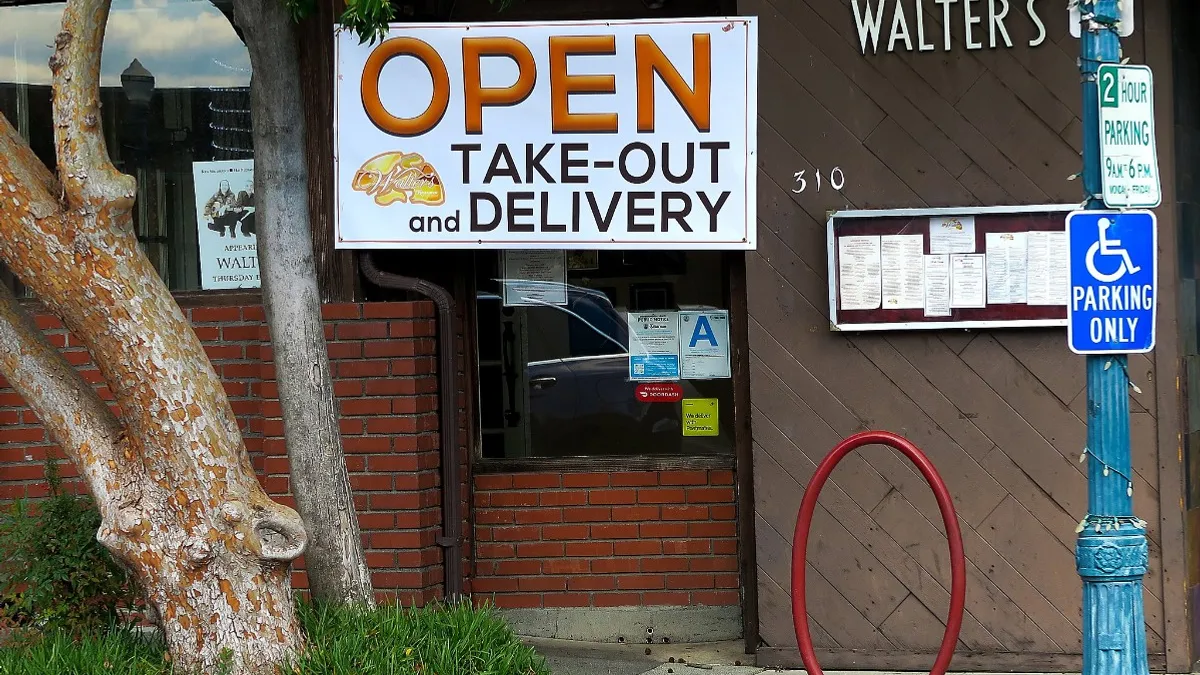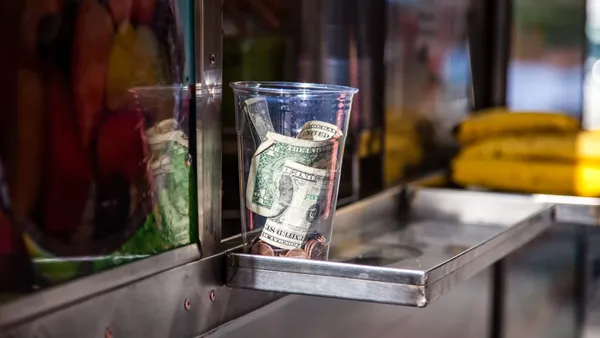Dive Brief:
- The National Restaurant Association sent a letter to Congress Monday urging lawmakers to change the Senate Heals Act's threshold of revenue loss that would determine a business' eligibility for a second Payment Protection Program loan. Currently, small businesses with fewer than 300 employees and a 50% loss in quarterly gross receipts over the previous year would qualify. Within these parameters, 55% of restaurants would not be eligible, according to NRA. The association is pushing for a 20% threshold, which would make 430,000 restaurants eligible for a second PPP loan.
- The association is also urging Congress to make changes to tax liabilities that come with PPP. If a business pays an expense with a PPP loan that is subsequently forgiven, business expenses that are normally deductible are no longer deductible.
- "This undermines the survival intent of the PPP program by imposing an unexpected tax liability of 25%–35% on forgiven loans," NRA Executive Vice President for Public Affairs Sean Kennedy said in a press release. "Restaurants that obtained a PPP loan to support employees and pay bills should not be facing unexpected, unintended tax burdens that further depletes their cash on hand. These PPP expenses should not face a massive 'clawback' in the form of federal taxes."
Dive Insight:
Though the Heals Act could give U.S. businesses an extended safety net as the novel coronavirus pandemic holds steady, the NRA and the Independent Restaurant Coalition say there are gaps in the plan that restaurants would slip through.
The tax liabilities that come with PPP loans could catch restaurants off guard, the NRA argues. The association cites examples of a restaurateur who is now shouldering a $182,000 tax burden after receiving PPP loans for five locations, and of a Texas operator with six locations who expects to have a tax bill exceeding $1.3 million.
Even if a thin-margined restaurant survives dining room closures, safer-at-home orders and delivery commissions of up to 30% if they partner with an aggregator, tax burdens like this could be too significant to sustain.
One in three U.S. restaurants could close permanently this year, according to Aaron Allen & Associates data. The industry's rapid closure rate, unique business model and vulnerability to changing consumer behaviors as droves of U.S. residents continue to work from home and even move from major cities are all reasons industry groups are pushing for direct restaurant aid. And if the Heals Act is passed as is and 55% of American restaurants are unable to access the funding, it could have devastating ramifications for the industry's longevity.
"The PPP got thousands of restaurants through the spring shutdown, but most are now open under strict business limitations and every month are wrestling with their bottom line," Kennedy said. "A second round of PPP will make or break these restaurants, so we encourage a bipartisan agreement to lower the qualifying threshold so that more of the struggling restaurants in our communities can have a fighting chance."
Both NRA and IRC continue to throw support behind the Restaurants Act, which would give U.S. restaurants $120 billion in funding and is specifically designed to bolster the industry. If the Restaurants Act isn't passed, the Heals Act's revenue loss threshold could be a benchmark that further destabilizes restaurants that have low gross revenue loss but are still on the bankruptcy bubble, adding to the country's staggering number of permanent restaurant closures.














